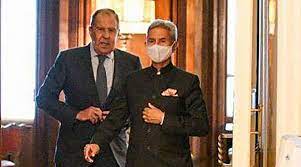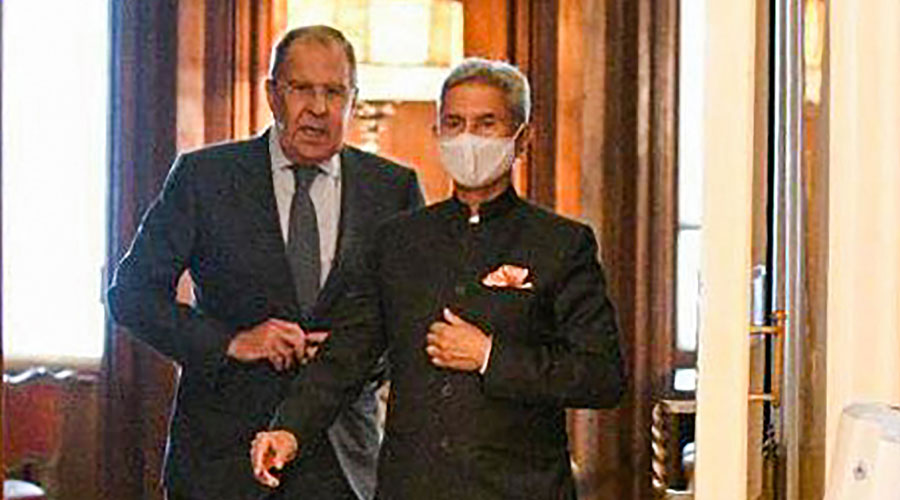India on Friday raised the issue of the legitimacy of who governs Afghanistan next, hours after Taliban claimed control over 85 per cent of Afghan territory.
“At the end of the day, who governs Afghanistan has a legitimacy aspect which cannot be ignored,” external affairs minister S. Jaishankar said at a media briefing in Moscow with his Russian counterpart Sergey Lavrov.
The observation comes at a time India has opened channels of communication with the Taliban, reversing a decades-old policy of not dealing with the outfit that has held sway on the war-ravaged country for nearly 30 years.
Jaishankar admitted India was concerned at the events in Afghanistan, and said it had implications for regional peace.
About his meetings in Moscow, Jaishankar said the situation in Afghanistan occupied a lot of attention because of the direct implication for regional security.
“We believe that the immediate need of the day is really a reduction in violence if we have to see peace within Afghanistan and around. It’s important for India and Russia to work together and ensure that much of the progress that we’ve seen in economic, social and democratic terms is maintained. We are both committed to an independent, sovereign, united and democratic Afghanistan.”
Lavrov, however, indicated that Moscow had no intention of stepping in to stop the violence in the wake of the departure of US and Nato troops from Afghanistan.
“The clashes are of great concern as the situation may spill across the border into our allied countries,” he said, underlining that the Taliban was in control of Afghanistan’s borders with Tajikistan and Iran. “We are not going to undertake any measure but urge for the political process to be taken forward.”
Although a Taliban delegation had visited Moscow on Thursday to assure Russia the outfit would not violate the borders of Central Asian countries and guarantee security for diplomatic and consular missions in Afghanistan, neither Jaishankar nor Lavrov referred to this engagement between two erstwhile sworn enemies.
The two ministers also discussed the Quad, of which Russia has been openly critical. According to Jaishankar, India supports cooperation that reflects the multi-polar and rebalanced character of global politics. Iterating India’s commitment to the centrality and unity of Asean, he said a more active Russian presence and participation in the Indo-Pacific was “very, very important”.
Travel rules
India and Russia also sought to make common cause on vaccination certificates for international travel. India, Jaishankar said, is batting for testing — both pre-departure and on-arrival — to be made the basis of international travel instead of vaccinations.
Russia and India face the spectre of home-developed vaccines being excluded from the list of authorised vaccines recognised for travel in the European Union, in particular.











